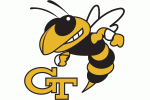Here are some questions and answers about the details in Kenneth Wainstein's report and its immediate aftermath.
Special investigator Kenneth Wainstein delivered his exhaustive report about academic fraud involving the African and Afro-American Studies Department at UNC on Wednesday. Here are some key questions and answers about the report and its implications:
Q: First things first: What's new in this report?
A: Much of what the Wainstein Report revealed was already known, just maybe not to the same degree. But there are three key pieces of new information:
- Debby Crowder was the mastermind while Julius Nyang'oro was more of a sidebar to the whole situation;
- The paper classes began in 1992, when Nyang'oro became department chair. The Martin Report had only tracked them back to 1997; and
- Contrary to the Martin Report, there were athletic academic support personnel who knew about the paper class system and used it to ensure the eligibility of athletes, primarily football players.
Q: Come on, you mean a secretary was the mastermind of a nearly 20-year scheme of fraudulent classes?
A: Pretty much. Crowder had worked as the student services manager in AFAM since 1979, but in 1992 Nyang'oro became the director and was essentially hands-off. He gave Crowder wide latitude to handle the administrative side of the department and even allowed her to sign his name to documents.
Wainstein notes that Crowder had an affinity for struggling students, especially student-athletes. She used her administrative role in the department to create and manage a scheme of fraudulent classes until her retirement in 2009.
Q: How did the paper class scheme work?
A: Crowder first set up independent study classes that were offered within the framework of the other, traditional independent study classes at UNC where a student would work with a professor on a topic of interest and complete a comprehensive paper at the end of the semester. The difference is, there was no meeting with a professor and Crowder herself graded the papers and assigned and processed grades for students. As the only required assignment was a final paper, these became known around the UNC campus as "paper classes".
Later, as scrutiny of the independent study courses grew and changes were made to how many independent studies courses students could take, Crowder changed the courses so that they appeared to be traditional, lecture-style courses but were being taught as a paper class. She also manipulated course enrollments so that students were added on to existing course rolls without the instructor's knowledge and later developed a system where a student was enrolled in the lecture section but only had to do a paper to receive credit.
Q: Did students actually write the papers or was she just giving out free grades?
A: By all accounts, Crowder did not award credit when a paper was not turned in. However, she was not known for her strenuous grading and students sometimes plagiarized sections of the paper they knew would not be read.
Q: Who knew about the paper class scheme?
A: A lot of folks, apparently. Academic support personnel in athletics were well aware of the lax requirements of AFAM but so were other members of UNC's non-athletic community. Crowder's willingness to help struggling students was well known in the traditional academic advising circuit as well as in the Carolina Covenant and Morehead-Cain programs. In other words, if you were an academic adviser with a student who needed a class for graduation or to get a GPA boost, you knew where to find Crowder.
In addition to the staff members, it was fairly common knowledge around Carolina's sports locker rooms that Crowder could hook you up. But it was also well known among the fraternity circuit. In fact, after football players, the largest single group of students taking paper classes were fraternity brothers.
Q: Who in athletic academic advising knew and what did they know?
A: It is safe to say that at least a couple of people knew a lot. Crowder was best friends with Burgess McSwain, who was the men's basketball academic adviser until 2004. She also had close relationships with football counselor Cynthia Reynolds and women's basketball adviser (and later Faculty Chair) Jan Boxill. Wayne Walden, who replaced McSwain in men's basketball, told Wainstein he suspected something was amiss.
Boxill and Reynolds would seem to be the primary culprits, as they went so far as to inform Crowder of the grades certain players would need to maintain eligibility. Walden, along with assistant coach Joe Holladay,eventually moved men's basketball players out of the AFAM curriculum that was so prevalent when Roy Williams arrived.
Q: So the coaches had to know what was going on, right?
A: Not necessarily. Women's basketball coach Sylvia Hatchell said she thought Crowder was an AFAM professor, and Walden's carefully chosen words to Wainstein would indicate Williams did not know the courses were fraudulent. Other coaches indicated they knew AFAM courses were easy or even offered in a paper class format but did not know there was no professorial oversight or that papers were being graded by an administrative assistant.
One notable exception is that football advisers Beth Bridger and Jaimie Lee prepared a presentation for Butch Davis and his staff in 2009 indicating the arrangement with Crowder was over and highlighted what kind of classes in AFAM were no longer available.
Q: Clearly this is an athletic scandal, right? Hundreds of athletes benefited from these paper classes and possibly saved their eligibility.
A: Again, this is a matter of interpretation. Wainstein goes to great lengths to demonstrate that Crowder's goal (and also Nyang'oro's, who had a soft spot for student-athletes if not Crowder's passion) was to help keep athletes in the game. But the fact remains that a majority of students enrolled in the paper classes - approximately 53%, were non-athletes. Chancellor Carol Folt described it as an athletic issue, an academic issue, a university issue.
Ultimately, if you were in the athletic scandal camp before this report, there is plenty of evidence to support that view. If you were in the academic scandal camp, there is also plenty to support that side as well.
Q: How was something like this allowed to go on unchecked for nearly two decades?
A: A little bit of this and a little bit of that. First of all, at the departmental level, there were only two people - Crowder and Nyang'oro - who really knew what was going on. Even other AFAM instructors really didn't know the extent of what was happening. Second, AFAM didn't offer graduate degrees so it did not fall under a five-year review most other departments did. Likewise, as a tenured professor and department chair, Nyang'oro was not subject to the same detailed performance review process as some other instructors. Third, there were a couple of missed opportunities to address potential problems, such as a conversation between Dean Bobbi Owen and Nyang'oro about the large number of independent study classes AFAM was offering. Crowder scaled them back and thorough follow-up was never done. And finally there is the tradition of academic freedom and allowing professors to teach their curricula with a minimum of oversight. That was extended too far in this case.
Q: But really, 3,100 enrollments, 18 years? I mean, come on!
A: Is that actually a question? The scope of this is unprecedented and it calls into question nearly every corner of the university, from departmental operation to oversight by the College of Arts and Sciences to athletic academic advising to the involvement of the Faculty Chair. The 3,100 enrollments in paper classes seems like something so large there is no way it could be hidden from anyone who cared to look, but those 3,100 enrollments were spread out over 18 years. That's roughly 172 per year, divided out over 2 semesters and two summer sessions, which comes out to about 43 per term, per year. Of those, using Wainstein's math of 47% athlete enrollment, that's an average of 21 athlete enrollments per term in paper classes. That's not likely to draw too much attention unless there is a reason to look, like following Michael McAdoo's revelations.
There is no excuse for what happened, and there is no excuse for the lack of oversight and the fraud that was perpetrated. But as eye-popping as those numbers are, they do require a context for complete understanding.
Q: If this was a scheme designed to benefit struggling student-athletes, how are 53% of the students in the paper classes non-athletes?
A: Good question. Wainstein goes all in on Crowder's purpose being to benefit athletes but never really addresses how more non-athletes than athletes got in the classes. The report does mention that Crowder's reputation for helping any struggling student was well-known all over campus, from the regular student academic advising offices in Steele Building to the prestigious Morehead-Cain Foundation and Carolina Covenant offices. At the end of the day, Crowder herself was responsible for processing all 3,100 enrollments so only she can answer that question, which Wainstein seemingly did not ask.
Q: This report proves the Martin Report was a joke, right?
A: Wrong, contrary to the media narrative. In fact, Wainstein goes to great lengths to praise the Martin Report. Many of the conclusions are the same, but Wainstein had one key asset that Martin did not: access to Crowder and Nyang'oro. Most of the distinctions etween the two reports are the result of gathering information from the key players. The Martin Report is best viewed as an evolutionary step to the information we have now.
Q: Is UNC just going to pat itself on the back now and say "let's move on?"
A: As opposed to previous times grim-faced administrators have been on the dais with the results of an inquiry, this time heads are rolling. Chancellor Folt and UNC System President Tom Ross announced disciplinary action would be sought against nine unnamed people including the removal of honorary status for one former employee. Early reports noted that Jan Boxill's name has been scrubbed from her directorship of the Parr Center for Ethics at UNC, and a news report out of Wilmington notes Beth Bridger was fired from UNC-W, where she was working in academic advising for athletes and it's safe to assume Jaimie Lee has been let go from UNC as well. "Someone's been fired over this" was a key component missing from previous inquiries.
In addition, UNC has previously announced over 70 reforms at its Carolina Commitment website. This whole event has been traumatic but in many ways this report is removing the dead and diseased tissue so that new growth can begin.
Q: Where does UNC go from here?
A: That remains to be seen. Local and national talking heads are lining up to take their whack at the UNC pinata once again, and as is often the case, context is lacking. There are many accusations of the athletics tail wagging the academic dog, and the sheer numbers - 18 years, 3,100 students, nearly 1500 athletes - seem staggering. Then again, when you boil it all down, it was one secretary in one department.
Basketball avoided a direct hit, even though many will try to take the focus back there. And frankly, no one cares that football was the primary beneficiary over the 18 years because no one really cares that academic fraud benefited a football team whose best season was 8-5, so the big media attention will likely turn back to Roy Williams. And there is still the matter of the NCAA investigation. Wainstein said he shared the results of his findings with the NCAA as they happened and before UNC even had a chance to see them. What they will do remains to be seen.
















